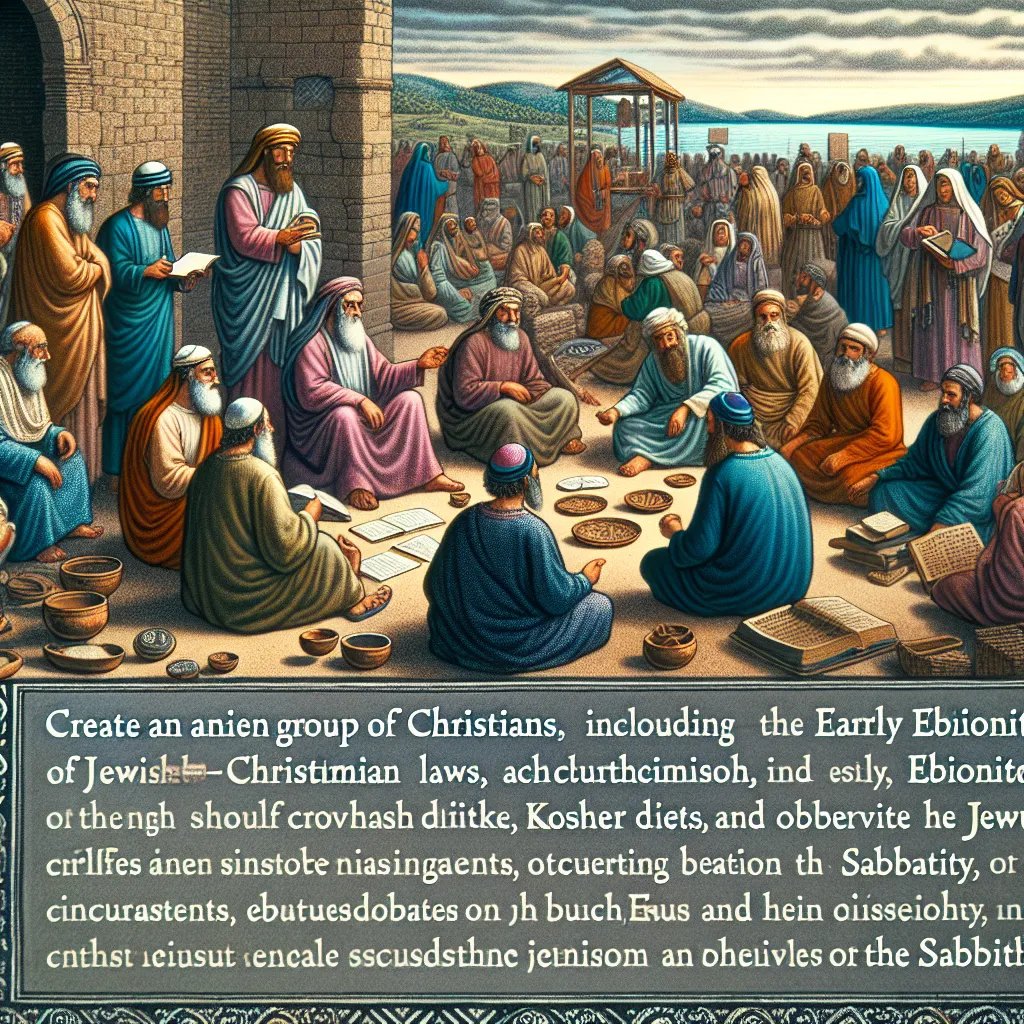The early development of Christianity is a captivating subject bursting with diversity and ancient texts that pop up once in a while to offer new insights. The shifts and growth within Christianity trace the journey of what is now the world’s largest religion, originating from various movements based on the teachings of Jesus of Nazareth. Some groups diverged significantly from his Jewish roots, like the Gnostics, while others remained deeply entrenched in Judaism, such as the enigmatic Ebionites.
Understanding Jesus through a Jewish lens is crucial since his life and teachings were deeply rooted in Jewish traditions. This doesn’t negate the possibility that he taught something distinct or that his followers later diverged. The early centuries of Christianity were marked by a tremendous diversity of beliefs and practices. Before doctrinal orthodoxy was established through church councils, numerous forms of Christianity competed to define the true teachings of Jesus.
These differences led to debates on almost all conceivable points of belief. Famous church councils tackled questions like the nature of Jesus, his relationship with God, the Trinity, and more. However, outside these councils, debates could be even broader—was there a Trinity at all, and was Jesus divine or merely a human messiah?
One significant debate was the relationship between Christianity and Judaism. While Jesus was undeniably Jewish, the early followers debated whether his message was a break from or a fulfillment of Jewish law. After Jesus’ death, his followers, led by his brother James and the apostle Peter, seemed to keep the Jewish law. Contrarily, Paul, an influential figure in spreading Christianity, argued that Gentiles converted to Christianity didn’t need to follow Jewish law.
This tension manifested in the larger early Christian community. Groups aligned with James maintained Jewish laws, while others followed Paul’s perspective. Paul’s view eventually prevailed and became central to Christian orthodoxy.
Enter the Ebionites, a fascinating group of Jewish followers of Jesus. They believed Jesus was the messiah and that following him meant observing Jewish laws. Unlike Paul’s teachings, they held onto practices like circumcision, kosher diets, and observing the Sabbath. They viewed Jesus as a human being chosen by God rather than God himself, rejecting the concept of Jesus’s divinity and virgin birth.
Ebionites are wrapped in mystery due to the lack of direct texts from them. Our knowledge comes from critics like Irenaeus, who saw them as heretics. Their name possibly derives from the Hebrew word “ebion,” meaning poor, hinting at their ascetic lifestyle. Jesus, for them, was a Jewish messiah who lived a perfect life according to Jewish laws and was thus chosen by God.
Their primary scripture was the Hebrew Bible, but they might have used a version of the Gospel of Matthew, which excluded parts conflicting with their views. They might have also had the “Gospel of the Ebionites,” a harmony of the synoptic gospels, supporting their vegetarian practices.
Although the Ebionites didn’t survive long, their influence and potential connections to later religious developments, like Islam, which views Jesus similarly, are intriguing. Various later Muslim writers mention groups resembling the Ebionites, indicating their possible survival in small pockets through history.
In essence, the Ebionites show the rich tapestry of early Christian diversity. They highlight that Christianity’s early stages were complex, with various interpretations of Jesus’s message coexisting, competing, and sometimes clashing. This group underscores Christianity’s profound roots in Judaism and the numerous paths it could have taken. Their story invites endless speculation on how religion evolves and diverges over time.






